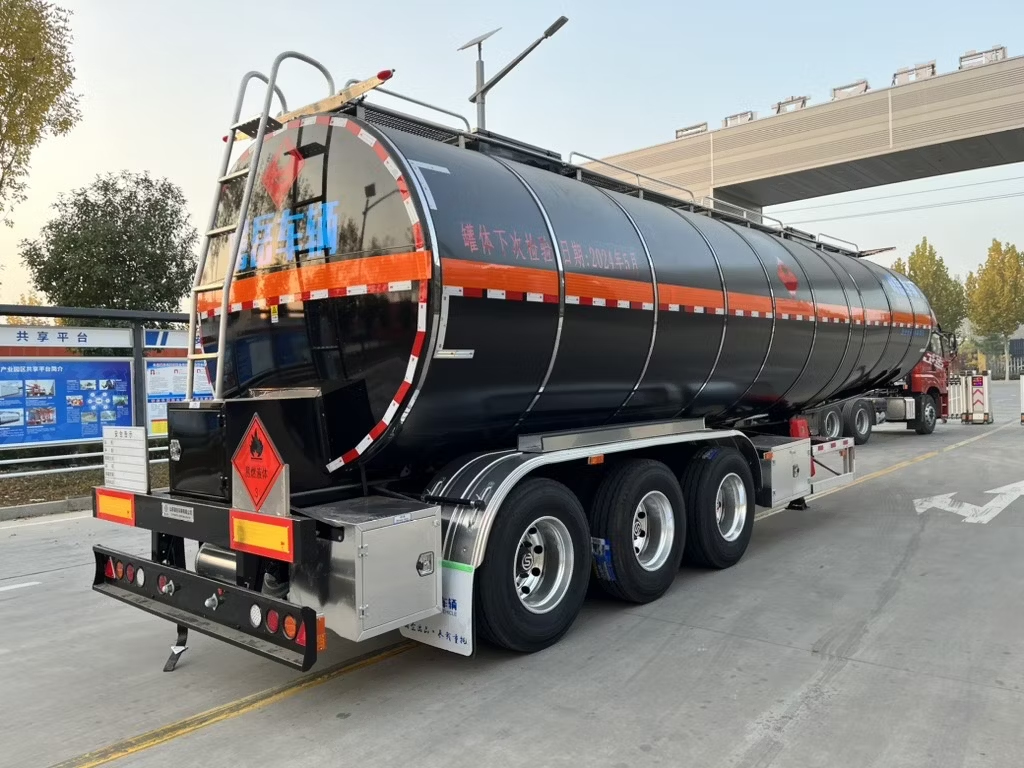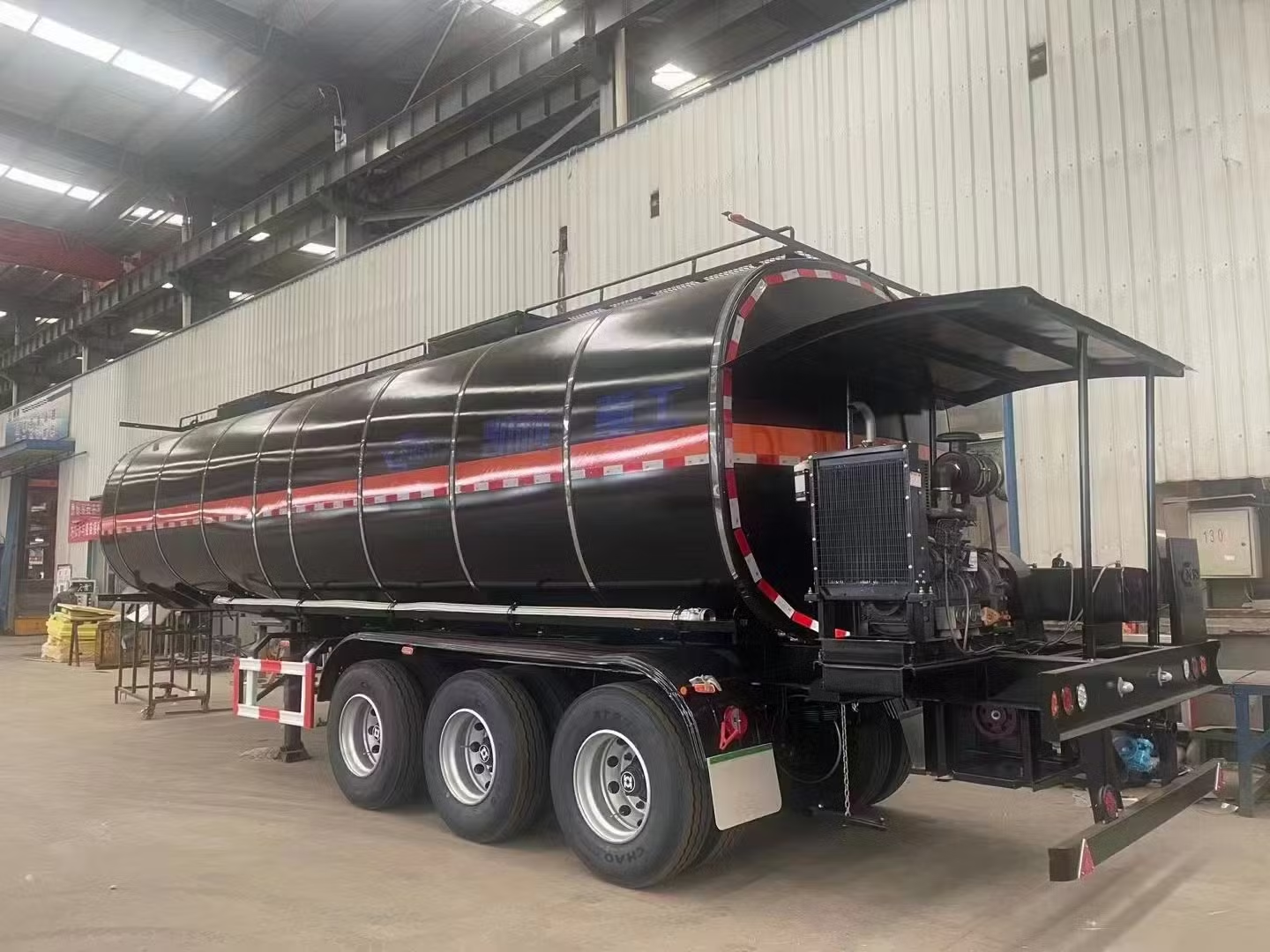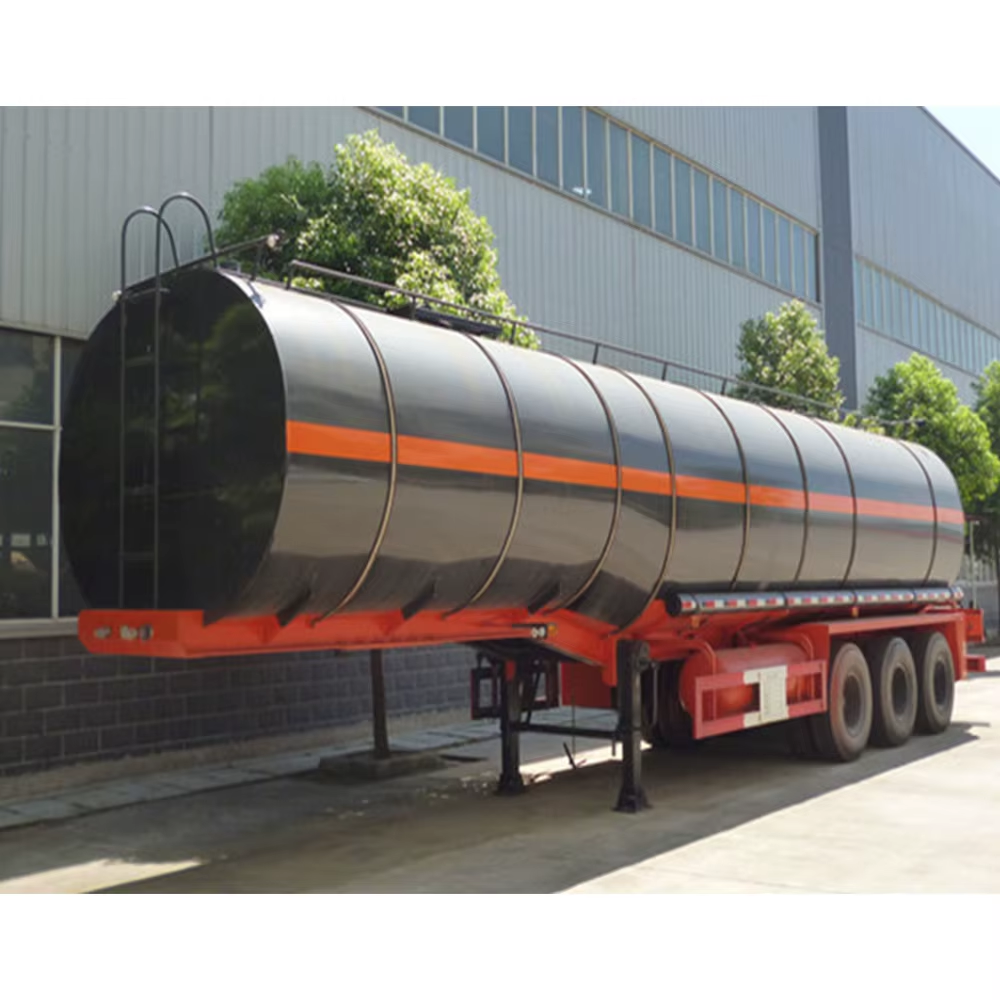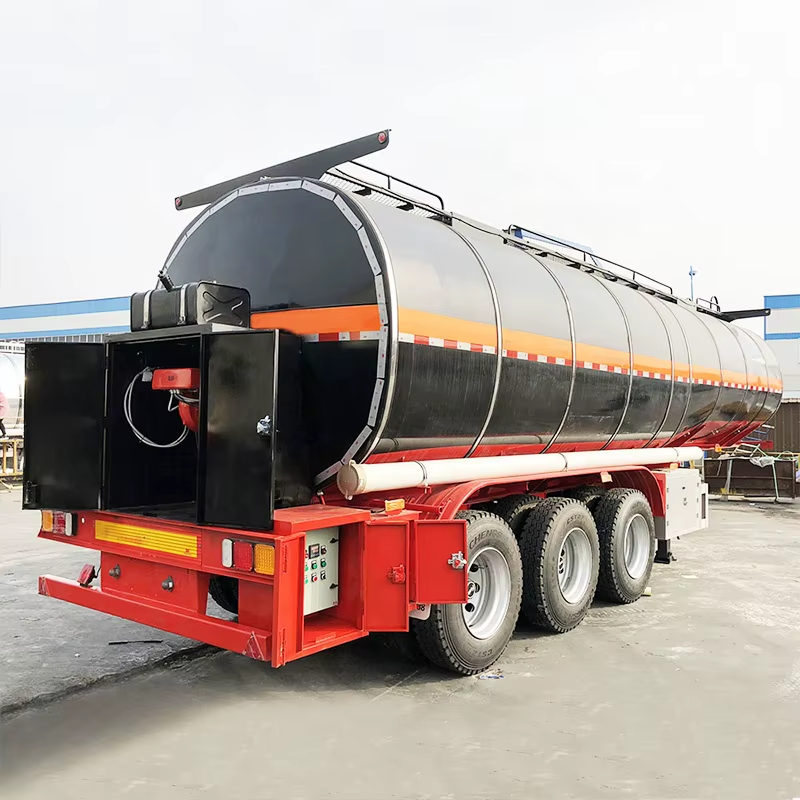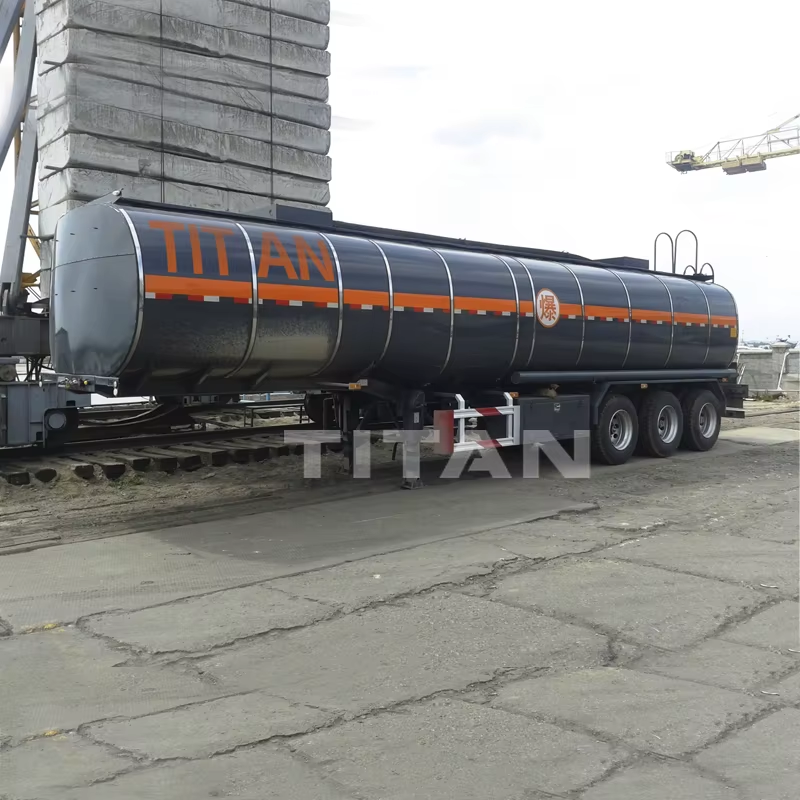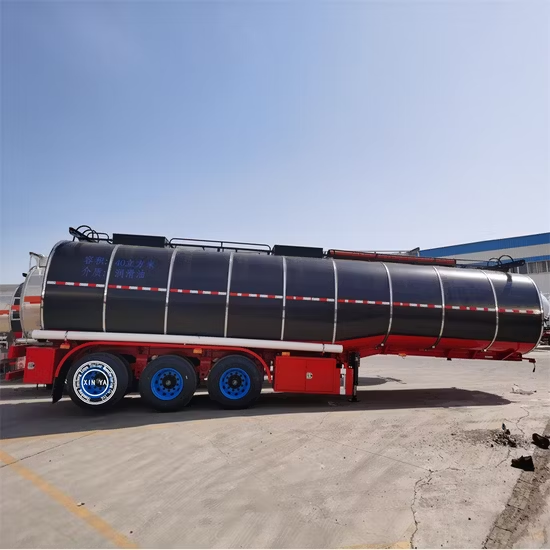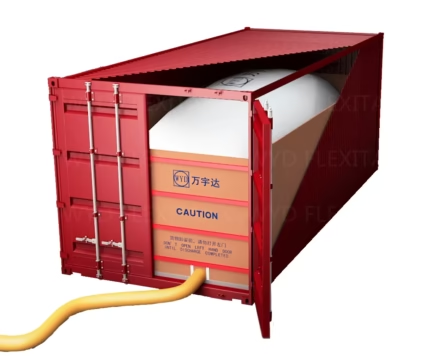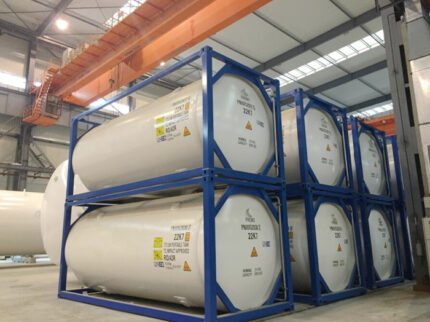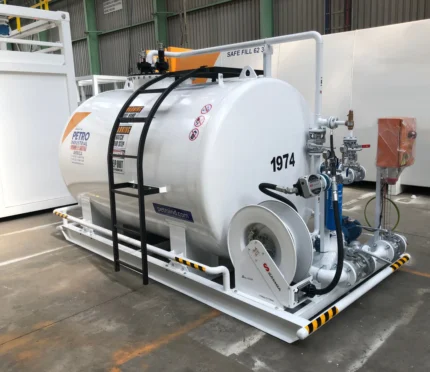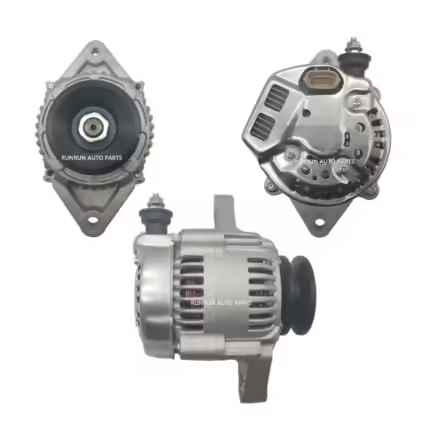Description
The Workhorse of Asphalt: Exploring the Heated Bitumen Tanker Trailer (30,000L – 40,000L)
The modern road network relies heavily on asphalt, and at the heart of asphalt production and transportation lies the often-overlooked, yet crucial, heated bitumen tanker trailer. Ranging in capacity from 30,000 to 40,000 liters, these specialized trailers are the silent heroes ensuring the smooth, consistent flow of bitumen, the binding agent that holds asphalt together.
Understanding the significance of these tankers requires appreciating the nature of bitumen itself. At room temperature, bitumen is a viscous, almost solid substance. To be workable and effectively mixed with aggregates in asphalt production, it needs to be heated to a specific temperature. This is where the heated bitumen tanker trailer shines.
What Makes These Tankers Special?
These trailers aren’t just standard liquid tankers. They’re engineered with a specific purpose in mind, incorporating several key features:
- Insulation: Maintaining the bitumen’s temperature is paramount. These trailers are typically heavily insulated with materials like mineral wool or fiberglass, minimizing heat loss during transit, even under varying weather conditions.
- Heating Systems: Several heating options are available, including:
- Diesel Burners: These are the most common, using a diesel-powered burner to heat coils within the tank. Efficient and reliable, they allow for significant temperature control.
- Electric Heating Elements: A more environmentally friendly option, using electricity to heat the bitumen. Suitable where access to reliable power is available.
- Hot Oil Circulation: A heat-transfer oil is circulated through coils in the tank, providing even heat distribution.
- Discharge Systems: Often equipped with pumps and valves, these trailers allow for efficient and controlled discharge of the heated bitumen at asphalt plants.
- Safety Features: Handling hot bitumen requires stringent safety measures. These tankers include features like pressure relief valves, overfill protection, and emergency shut-off systems to prevent accidents.
- Durable Construction: Built to withstand the rigors of transportation, these tankers are typically constructed from high-strength steel, ensuring longevity and reliability.
The Role They Play:
Heated bitumen tanker trailers play a vital role in several key areas:
- Asphalt Paving: They transport heated bitumen from refineries or storage facilities to asphalt mixing plants, ensuring a constant supply for road construction and maintenance.
- Road Repair: Quick and efficient delivery of hot bitumen is crucial for pothole repair and other patching operations, minimizing traffic disruption.
- Roofing Materials: Bitumen is also used in the production of roofing materials. These tankers transport the bitumen to manufacturing plants.
- Industrial Applications: Bitumen has various industrial applications, including sealant and waterproofing. These tankers facilitate its transportation to various industrial sites.
Choosing the Right Tanker:
Selecting the right heated bitumen tanker trailer depends on specific needs and operational requirements. Factors to consider include:
- Capacity: The 30,000L – 40,000L range offers a good balance between payload capacity and maneuverability.
- Heating System: Choosing the right heating system depends on fuel costs, environmental considerations, and operational efficiency.
- Insulation Quality: Higher insulation values translate to less heat loss and reduced energy consumption.
- Safety Features: Ensuring compliance with all relevant safety regulations is paramount.
- Manufacturer Reputation: Choosing a reputable manufacturer ensures quality construction, reliable performance, and readily available support.
Conclusion:
The heated bitumen tanker trailer, in the 30,000L to 40,000L range, is an indispensable component of the asphalt industry. These specialized vehicles, with their advanced heating and insulation systems, guarantee the efficient and safe transportation of bitumen, enabling the construction and maintenance of our vital road infrastructure. Understanding their functionality and the technology behind them is crucial for anyone involved in asphalt production, road construction, or related industries. They are the unsung heroes, working tirelessly to keep our roads smooth and safe.

